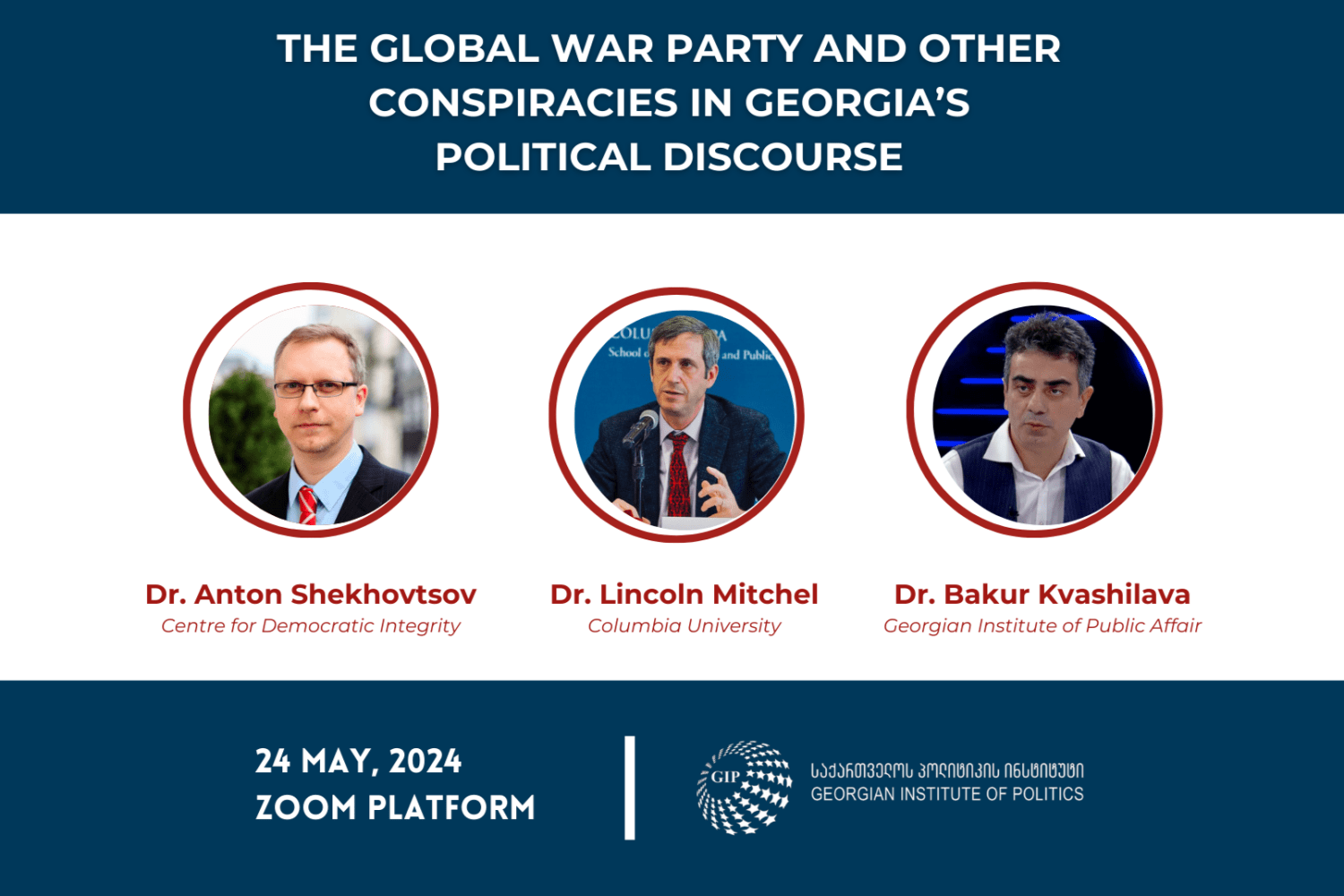The Georgian Institute of Politics organized a virtual public discussion on May 24 titled “The Global War Party and Other Conspiracies in Georgia’s Political Discourse.”
Amidst the tensions caused by the reintroduction of the so-called Foreign Agents Law, the Georgian Dream party leaders have built a narrative marked by mistrust, polarization, and scapegoating, primarily targeting civil society, media figures, and their political opponents. However, one of the most striking features of the current political crisis is the prominence of conspiracy theories in the public discourse of the Georgian government.
According to statements from Bidzina Ivanishvili and the Georgian Dream leaders, they believe in the existence of a global force called the “Global War Party” responsible for creating conflicts and dragging countries into wars with Moscow. This group is also responsible for a range of problems for Georgia, including the 2008 Russia-Georgia War and the initial failure to attain EU candidate status in 2022.
The term “Global War Party” has been coined in Georgia and contains a number of sensitivities for Georgian society. While the exact meaning remains unclear, the term “global war party,” likened to “freemasons” by an MP from the ruling party, is increasingly used by Georgian Dream and its allies, seemingly to garner support through populist and conspiratorial rhetoric.
The discussion examined the strengthening of conspiracy narratives in Georgia, seeking to understand its origins and impact on the country’s political discourse. It also explored the links with global conspiracy trends and analyzed the question of the internationalization of Georgia’s populism.
The discussion, therefore, was focused on the following questions:
- What does the “Global War Party” mean in the current context of illiberal populist discourse? What does the increasing use of conspiracy theories indicate about the Georgian Dream party?
- Is the EU and US capable of rebuking the new wave of anti-Western propaganda and how can it be addressed in the EU’s neighborhood?
- How does the context of Russia’s war in Ukraine feed into conspiracy theories?
The session was moderated by Dr.Kornely Kakachia, director of the Georgian Institute of Politics. The agenda featured a panel of distinguished speakers, each bringing their unique expertise to the discussion: Dr. Anton Shekhovtsov, Director, Centre for Democratic Integrity; Dr. Lincoln Mitchel, School of International and Public Affairs, Columbia University; and Dr. Bakur Kvashilava, Dean of the School of Law and Politics, GIPA.


